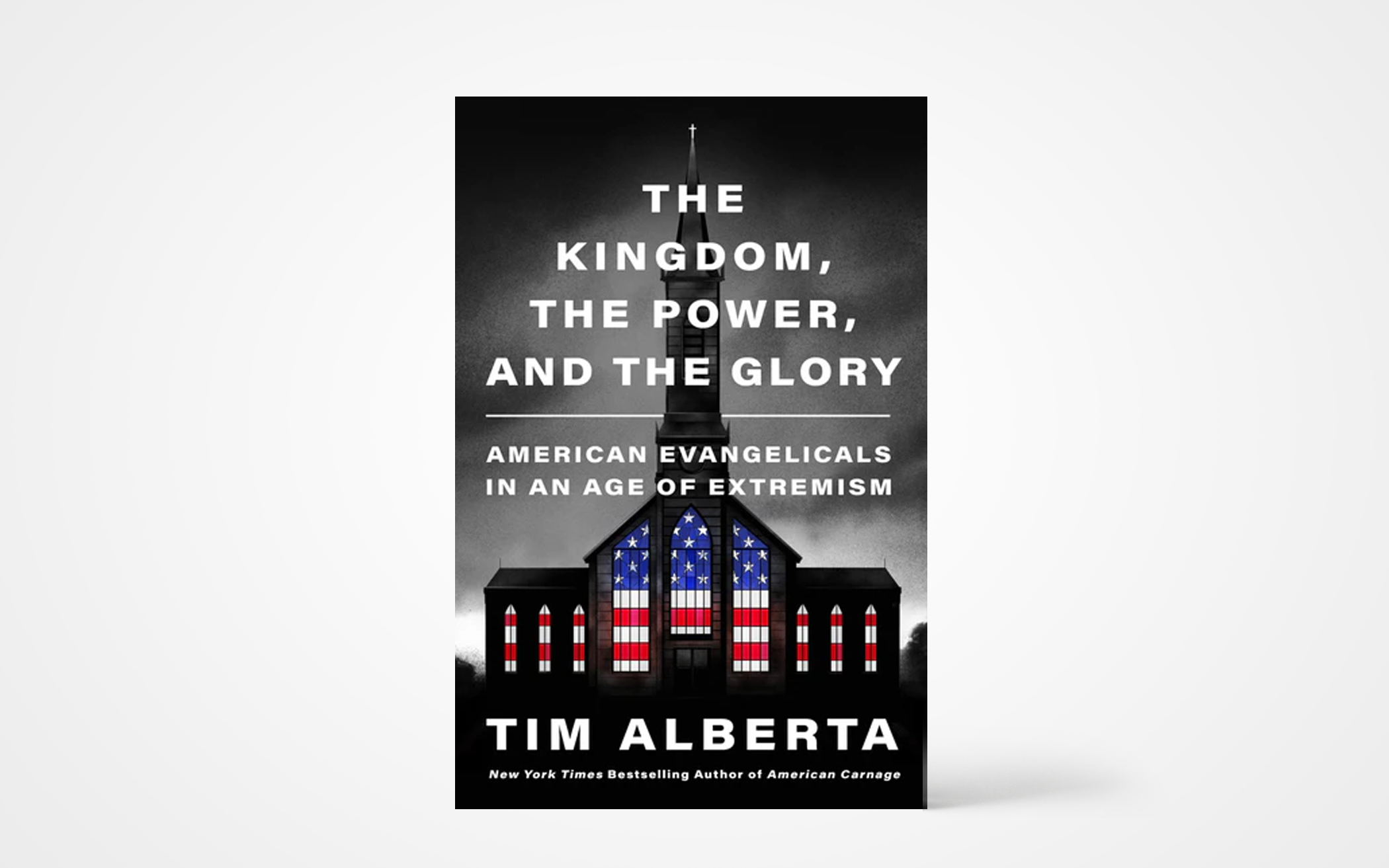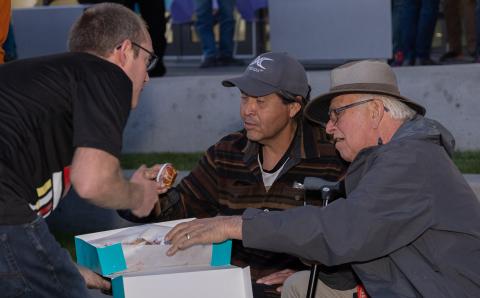Journalist Tim Alberta became certain: Evangelicalism had changed.
Alberta recounts the words he heard in the receiving line for his dad’s funeral. Here in a Brighton, Mich., church where Alberta had grown up under his dad’s pastorate, he encountered not sympathy—but attacks about why he didn’t share their views on conservative politicians and media figures. Alberta was even asked if he was really a Christian.
He recalls, “All the while Dad was in a box a hundred feet away ... (Evangelical Christians) didn’t see a hurting son. They saw a vulnerable adversary.”
The Kingdom, the Power, and the Glory draws a through-line across decades of events to locate where Evangelicalism has fractured. Was it the uptick of racism when Obama became president? Resistance over governmental efforts during COVID? Or was something at work before these events?
Alberta’s research explores earlier decisions like Rev. Jerry Falwell’s 1975 PR move that melded American pride and a new college. As the bicentennial neared, Lynchburg Baptist College became “Liberty” and the choir tour was renamed “I Love America.” As wealthy Arthur DeMoss coached Falwell, the latter rebranded Evangelicalism with Republican politics. “Newsweek” dubbed 1976 “The Year of the Evangelical.” The spotlight had clicked on.
Each chapter recounts stories from different regions: Atlanta, Ga.; Montgomery, N.Y.; Columbus, Ohio; Washington, D.C. Whether we delve into the Southern Baptist fracas or a lone pastor’s shattering, the patterns align.
For example, Pastor Russell Moore led the Southern Baptists—until he quit. He had devoted his career to this denomination despite disliking the uptick of political intrusion. “By the nineties,” Moore recalls, “being a real Christian meant voting Republican.”
Writes Alberta: “Evangelicals had mortgaged the future of the Church on extrabiblical causes, Moore thought to himself, and all they had to show for it was smaller numbers and a diminished witness.”
While Moore struggled as a leader, he encountered wise words from renowned journalist David Brooks: “You better watch out for the death spasms. Anytime you have a group that feels as though it’s headed toward generational demise, it lashes out. It puts up a fight. It refuses to give up what’s theirs.”
I found Alberta’s book a worthy and troubling read. Why? It articulated well the knife edges I now feel in my world.
And as a Christian, Alberta cares. He cares about Christianity. Alberta grounds each chapter in a verse—a thoughtful verse. Now, might he have a chip on his shoulder too? He might. Sometimes his tone devolves into snark. But he also has fine street cred. He co-facilitated a 2019 presidential debate and wrote the New York Times bestseller American Carnage: On the Front Lines of the Republican Civil War and the Rise of President Trump. Alberta now writes for The Atlantic.
The Kingdom, the Power, and the Glory scares me. After all, no matter which party we may align ourselves with, trouble abounds when we confuse, as Frederick Douglass says, the Christianity of the Land with the true Christianity of Christ. (HarperCollins).
About the Author
Cynthia Beach authored the 2024 novel, The Surface of Water, and the writing book, Creative Juices for Writers. She co-directs Scriptoria Workshop with Newbery-winner Gary Schmidt. In 2025-6, she will serve as Artist in Residence in Dundee, Scotland.








